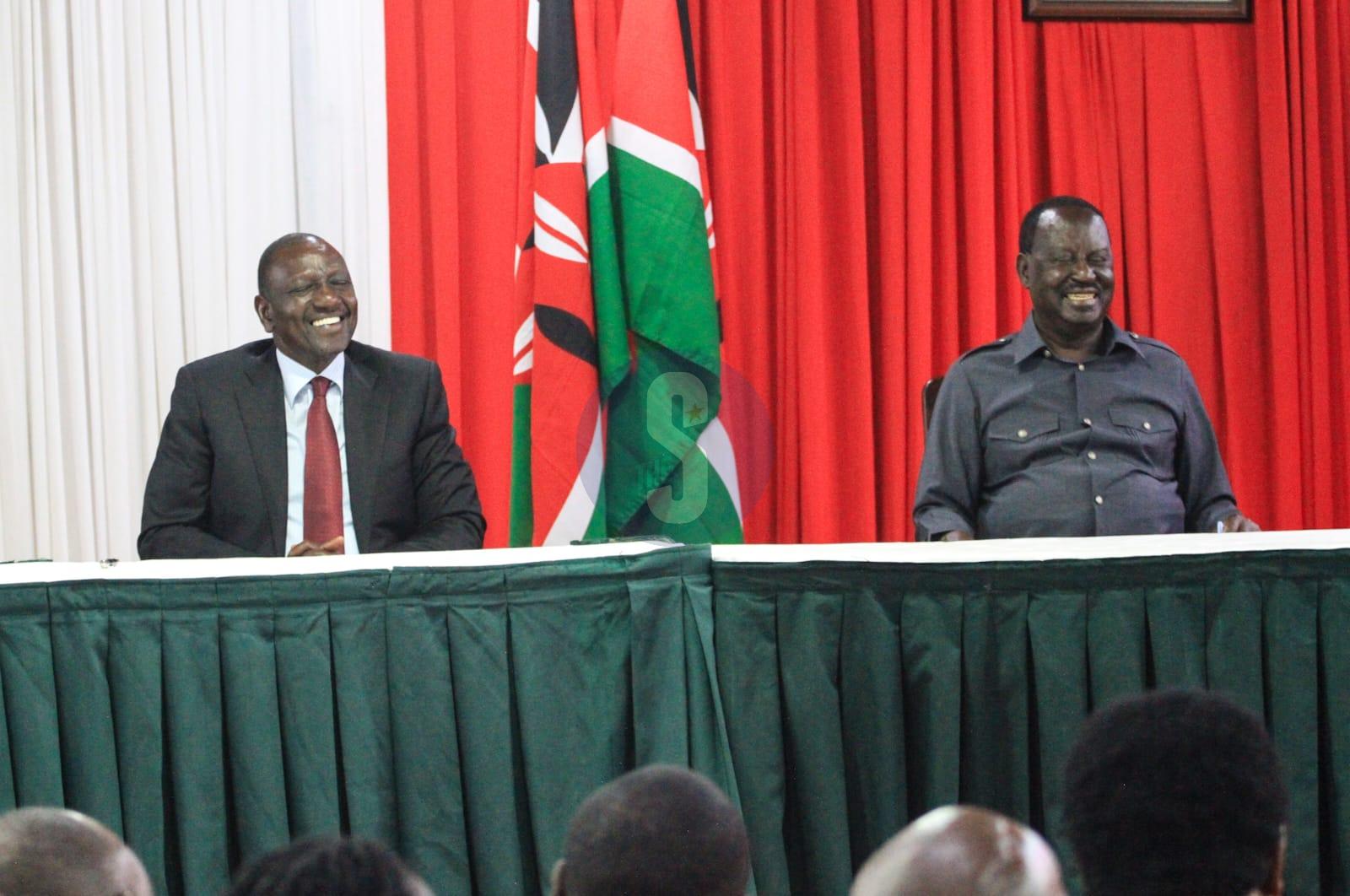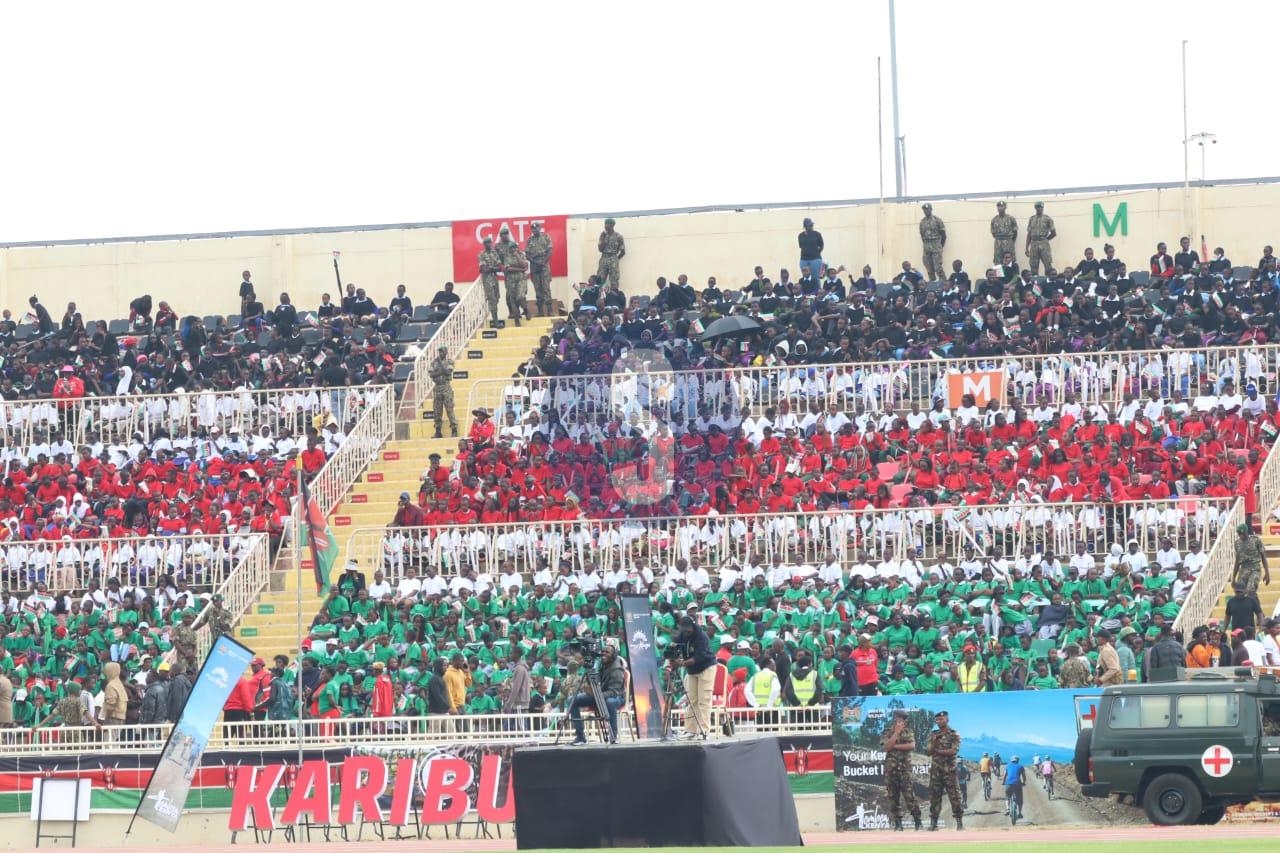

The deal between President William Ruto and former Prime
Minister Odinga listed 10 priority areas that the working framework will
explore.
The Memorandum
of Understanding is premised on a commitment to resolve the social, economic and political challenges
facing Kenya.
According to the MoU seen
by the Star, the two leaders will first work towards full implementation of the
NADCO report, where issues like the cost of living, youth unemployment and
establishing a framework for the implementation of the two-thirds gender rule
will be addressed.
The MoU listed inclusivity in all spheres of public life as
the second agenda they will be exploring.
Ruto and Raila acknowledged that while the Constitution of
Kenya is clear on the rights of minorities and marginalised people in the
country, not enough has been done almost 15 years later to uphold these rights
by fully implementing the provisions of the Constitution.
“Kenya belongs to all persons regardless of their
ethnicity, religion, generation, or geographic location. All Kenyans are equal, and all are entitled to an equitable budgetary resource allocation and opportunities
in public appointments,” the MoU states.
In addition, the two leaders agreed to protect and
strengthen devolution.
The MoU said Raila and Ruto will work towards ensuring
devolution continues to be protected from any possibility of clawback on
devolved functions.
The two will ensure the devolving of all funds allocated to a
devolved function, increasing budgetary allocation to counties and ensuring the
timely and predictable disbursement of devolved funds.
Fourthly, the MoU listed promoting and protecting the
livelihoods of young people.
Raila and Ruto agreed that urgent and massive investment
must be made in all high potential sectors of the economy, including mining,
blue economy, agriculture and ICT.
They agreed to create sufficient employment opportunities
that provide ways for young people to earn a decent living; nationwide economic
stimulus programs must be initiated.
“Young people must also be mainstreamed in all political
spaces to bring their voices to the table and their participation to the centre
of all activities,” the MoU states.
Under leadership and integrity, the two leaders
acknowledged that Kenyans are concerned by the expression of opulence
accompanied by rude and arrogant conduct by public officers and the apparent
impunity that has followed the same.
They agreed that the demeanour of public servants needs to
reflect the dignity of the office and the respect owed by them to the citizens
of Kenya.
“We must also urgently provide a legal and institutional
framework for addressing conflict of interest among public servants,” the MoU
states.
Under the six agenda, the two leaders agreed to promote the
right to peaceful assembly and protests under Article 37 and compensation of
all pending claims of abuse and derogation of this right.
“The effort to uphold this right must now involve not just
the taking of responsibility by officers who break the law but also by the
compensation of the victims of these derogations,” the MoU states.
“An amnesty must be granted to those who are charged for
offenses based on their exercise of their right to peaceful assembly.”
They agreed that the National Police Service must update
their methods and processes of dealing with demonstrations and assemblies when
they are held and particularly when they have to be managed or contained.
On national debt, Raila and Ruto agreed that an audit must be
conducted on how much has been borrowed in the past and how it has been used.
Going forward, they agreed to stop the ballooning of the
national debt and ensure accountability for future borrowing.
“Lastly, we must ensure that money borrowed is used in a
manner that grants an equitable benefit to all Kenyans in every region of the
country since payments are made by all from taxes regardless of their locations,”
the MoU states.
On the fight against Corruption, the MoU stated that Kenya needs to move from
talk to action.
“We must move from the fight against corruption to winning
the war against corruption,” the MoU states.
“We must enhance the capacity of the institutions that
enforce accountability, and particularly the offices of the Auditor General,
the Controller of Budget and the Ethics and Anti-Corruption Commission.”
Under the ninth agenda, the two leaders agreed to stop wasting public resources and promote government efficiency.
They agreed that the new ethos of public expenditure in
both national and county governments must be inculcated in a manner that
promotes austerity, justification and effectiveness in the use of public
resources.
Lastly, the MoU listed protection and promotion of
sovereignty of the people, the Rule of Law and Constitutionalism as its final
agenda.
Under the tenth agenda, the two leaders stated that the
government and its officers must obey court orders and only challenge the
validity of judicial pronouncements through legal processes.
They agreed that the spectre of abductions and
extrajudicial killings do not bode well for democracy and should, therefore, be
stopped.
“Suppression of constitutional freedoms including free
speech, expression, assembly and media must stop. Furthermore, political
parties,s being key pillars of democratic participation, must be strengthened,”
the MoU states.
At the same time, the two leaders resolved to respect the identity and integrity of all political parties and to ensure respect and implementation of the provisions of the Political Parties Act.


















